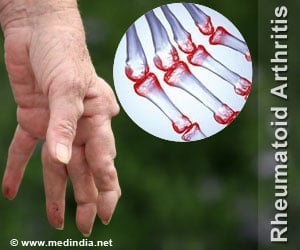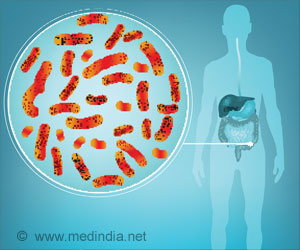
- The gut microbiota is different for different people and is influenced by genes as well as the environment.
- The place of birth affects the type of microbiota present and a change in domicile does not remove the core microbiota.
- A part of this core microbiota is inherited from parents.
The study involved analyzing 50,000 genes, out of which 100 snippets were identified that were found to affect the microbes in the gut. Some of these identified genes were similar to genes found in the humans and associated with disease conditions like Crohn’s disease, colon cancer, celiac disease, arthritis and diabetes.
Supporting the Immune System
A probiotic strain of Lactobacillus was found to be associated with multiple genes and its presence improved a type of T cells in the body. This increased immunity will go a long way in providing the right immunity.
The first author of the study, Antoine Snijders of the Berkeley Lab said "We know the microbiome likely plays an important role in fighting infections. We found that the level of T-helper cells in the blood of mice is well explained by the level of Lactobacillales in the gut. It's the same family of bacteria found in yogurt and very often used as a probiotic."
The studies used mice that were a ‘collaborative cross’ and which reflected the genetic variations found in humans. 30 strains of the mice were initially separated and placed in two different housing environments for the first four weeks and the microbiome of their gut determined from fecal samples. The mice were then placed in a third environment.
Another author of the study Jian-Hua Mao said "The early life environment is very important for the formation of an individual's microbiome. The first dose of microbes one gets comes from the mom, and that remains a strong influence for a lifetime and even beyond."
Dr Jannsen continues "Our findings could have some exciting implications for people's health. In the future, perhaps people could have designer diets, optimized according to their genes and their microbiome, to digest foods more effectively or to modulate their susceptibility to disease."
Importance of Microbiomes in the Gut
The human microbiome reference database that was set up in the year 2012 gave a clear picture about the number of normal microflora that exists in our body and their support in our health. The functions of the gut microbes in human health include
- They aid in the digestion of food
- They produce chemicals that are anti-inflammatory
- They aid in fighting auto-immune diseases.
- They aid in identifying harmful species from the normal flora
- It can be used to identify liver disease patients.
- The type of micro-organisms present in the gut can either cause or prevent rheumatoid arthritis
- The micro-organisms that are found in the gut are mostly bacteria
- They can reduce the risk for kidney stones.
- The microorganisms present in the gut are called gut microbiota
- The total genes of the gut microbiota are called gut microbiome
- The genes present in the gut microbiome are 150 fold more than the genes in the human.
The micro-organisms present in a human are influenced by the type of birth - whether vaginal or caesarean. It is found that vaginal birth exposes the baby to micro-organisms that offer greater immunity. Children delivered using the caesarean method tend to have poor immunity and have greater risk of becoming obese.
Food Consumed
The food that we eat is not only a source of energy for us but for the gut microbiota as well. Therefore the type of food we eat leads to the colonization of micro-organisms that feed on that type of food.
The gut microbiome is an important factor as it aids in understanding the extent of support to the digestive process. Lactose intolerance is one such food intolerance that is present in a large number of Indians, with 88% of South Indians considered to be lactose intolerant.
However, when following a South Indian diet, the symptoms associated with the condition are not very predominant. When the individual travels to the U.S and stays there for a period of time, the microflora of the gut probably changes, based on the current study.
Another factor that could contribute to the gut microbiota is the lactobacillus species in the yogurt available in India, which might not be available in the U.S. This affects the extent of symptoms exhibited by the individual and within a period of a few months, the lactose intolerance symptoms are more pronounced, requiring the individual to consume lactose free milk.
The current study aids in highlighting such instances where the gut microbiome plays an important role in the health of the individual.
Reference:
- The role of gut microorganisms in human health - (http://www.eufic.org/article/en/artid/The_role_of_gut_microorganisms_in_human_health/)
Source-Medindia










